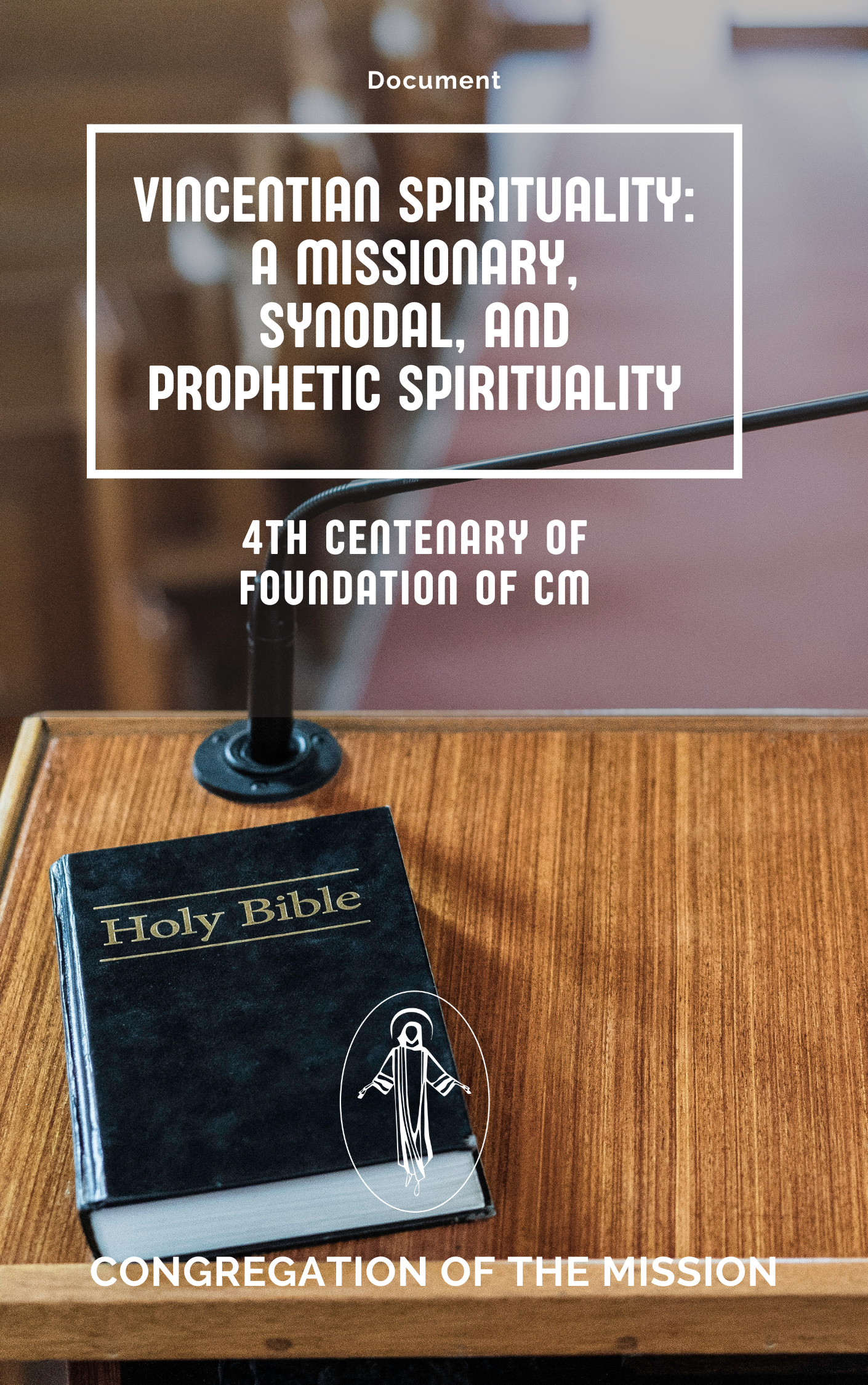We want to live the celebration of the 400th anniversary of the foundation of the Congregation of the Mission (2025) as a privileged occasion to revitalize our missionary, synodal, and prophetic identity, following the path laid out by the Church and assumed by our 43rd General Assembly (2022). To this end, there is nothing better than to begin by reflecting on the spirituality that supports and identifies us as heirs of the Vincentian charism.
SEE – A contemplative look
There is no need to return to a rigorous definition of Vincentian spirituality. We know that it is a Christian lifestyle inspired by the spiritual journey of Saint Vincent de Paul. It is an appropriate way of following Jesus Christ, clothing oneself in his spirit of charity to accompany him in his mission of evangelizing the poor and of forming clerical and lay evangelizers. This is how Article 1 of our Constitutions clearly summarizes it. This is, in fact, our path of sanctification, the purpose of our presence and action in the Church and in the world, our identity card.
There are, of course, different ways of interpreting Vincentian spirituality, emphasizing this or that dimension that characterizes it. However, no interpretation can take for granted the foundation that gives it evangelical solidity, mystical depth, ecclesial relevance, and apostolic vitality. We refer to the dynamic identification with the person of Jesus Christ, contemplated in the mystery of his incarnation, considered in his unconditional surrender to the Father, followed by his generous dedication to the poor, and served in the least of his brothers and sisters. By the way, Saint Vincent asked, what love can we have for Him if we don’t love what He loved! (CCD XIIIb, 434).
According to our Founder, without reference to Jesus Christ, without an ongoing relationship with him, without the continual and renewed disposition to love what he loved, there can be neither charity nor mission worthy of those names. The heart of Jesus overflowed with love for the Father, whose will was the food of his life and the reflection of his actions (cf. John 4:34; 5:19), and with love for the poor, to whom he recognized that he was sent and with whom he wanted to identify himself in a radical way (cf. Luke 4:18; Matthew 25:40). It was precisely in this way, filled with passion for the Father and compassion for the poor, that Jesus of Nazareth entrusted to his disciples the continuation of his saving work (cf. Luke 10:1f; Mark 16:15). Vincentian spirituality involves us directly in the mission of the Son of God: “Yes, Our Lord asks us to evangelize the poor; that’s what He did, and what He wants to continue to do through us” (CCD XII, 71). From this essential core, which is the person of Jesus Christ himself—whom we encounter in the Gospel, in the Eucharist, and in the poor—the constitutive elements of Vincentian spirituality are outlined: trust in Providence, the search for and fulfillment of God’s will, the integration of evangelization and service, fraternal life in community, the virtues that define us, the living out of the evangelical counsels, etc.



